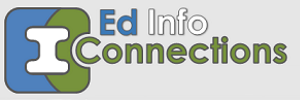There continues to be ongoing discussion about valid and appropriate assessment of student learning (for example see here) and its use in school accountability (see here as part of the NCLB waivers discussion ). Most of this debate focuses on traditional views of assessment as decontextualized tasks delivered outside of the regular classroom process. This is differentiated from the more formative assessment done by teachers and parents that involves observations of performance in the context of daily learning activities. In the past, the data from these formative assessments have been difficult to impossible to capture and use on a large scale. However, this is no longer the case.
The logic of artificial testing presupposes that behaviors are unlikely to occur and if they did occur naturalistically, there would be no mechanism by which to capture the data for inferential purposes. This logic holds in the 20th century in which tasks, observations, data collection and analysis were largely done by physical means, a time we refer to as the “Digital Desert”. However, in the 21st century, the day to day records of our activities are seamlessly recorded in a growing ocean of digital data: who we talk to (cell phone and Facebook records), where we are (Google Latitude), what we say (gmail and gvoice), the games we play on-line, what we do with our money (bank records), and where we look on-line. This emerging reality we refer to as the “Digital Ocean”.
As the digital instrumentation needed for educational assessment increasingly becomes part of our natural educational activity, the need for intrusive assessment practices that conflict with learning activities diminishes. The assumptions of pre-digital assessment delivery models and their corresponding side effects, should be brought increasingly into question. Assessment in the digital ocean has the potential to break down traditional distinctions between curriculum and assessment, formative and summative assessment, formal and informal education and other current instructional and assessment constructs. How should we change our assessment practice? What opportunities exist for changing practice? How do we think differently in the rising Digital Ocean?
I look forward to exploring these questions in future posts!
More on our concept of the digital ocean will also be explored in the forthcoming:
DiCerbo, K. E. & Behrens, J. T. (in press). Implications of the digital ocean on current and future assessment. In R. Lissitz (Ed.) Computers and their impact on state assessment: Recent history and predictions for the future. Charlotte, North Carolina: Information Age Publishing.

Leave a Reply